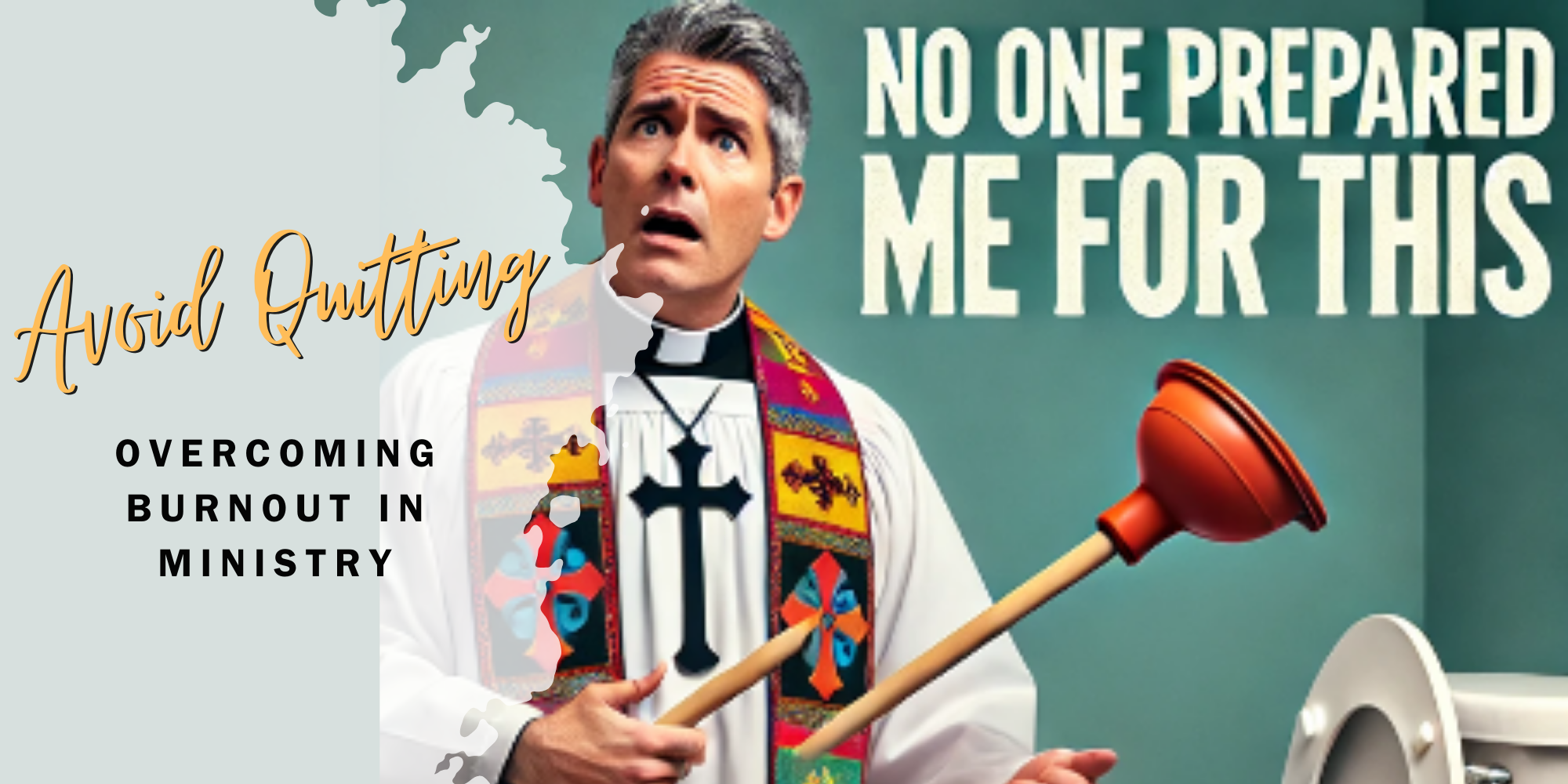Quitting has become a hot topic in modern conversations, from quitting bad habits like smoking to the phenomenon of “quiet quitting” in the workplace. This discussion is especially relevant to ministry, where burnout and frustration can lead to the reconsideration of one’s vocation. This article explores why ministers consider quitting, signs of burnout, and how coaching can provide support to help clergy stay committed to their calling.
The Impact of National Quitters Day
Every year, the second Friday in January, known as National Quitters Day, marks the moment when many abandon their New Year’s resolutions. This phenomenon isn’t limited to personal goals; it affects those striving to achieve professional and spiritual milestones. Ministers are not immune to this trend, often feeling the weight of burnout and discouragement.
Why It Matters
Burnout among ministers is an urgent issue, as reflected in these statistics:
- 90% of ministers report experiencing burnout.
- 40% face the risk of immediate burnout.
- 80% of seminary-trained ministers leave the profession within five years.
- 30% will leave their current position within three years.
This rate of burnout exceeds the national average across professions. Just when churches need effective leadership, ministers often feel isolated and unprepared, leading them to contemplate quitting.
Common Causes of Ministerial Burnout
Ministers frequently encounter challenges that contribute to burnout:
- Lack of preparation: Many feel ill-equipped for the realities of ministry, often stating, “They didn’t teach me this in seminary.”
- Conflict resolution: Struggles with addressing church conflicts and organizing programs effectively.
- Isolation: A staggering 70% of clergy report having no close friends or confidants to discuss their frustrations.
This loneliness creates a cycle of disconnection and self-doubt, pushing many to question their vocation.
Are You at Risk of Burnout?
The Mayo Clinic outlines several signs of burnout and depression. If you answer “yes” to any of the following questions, it may indicate a need for support:
- Do you question the value of your work?
- Do you struggle to get started at work?
- Do you feel disconnected from your colleagues?
- Is focusing on your job difficult?
- Do you feel let down by your job?
How Coaching Can Help Clergy Stay Committed
Leadership coaching offers a lifeline for ministers seeking guidance and renewal. Here’s how coaching supports clergy:
- Confidential support: Coaches provide a safe space to discuss challenges and explore solutions.
- Skill-building: Coaching focuses on enhancing leadership skills and fostering personal growth.
- Flexible scheduling: Sessions typically occur via phone or Zoom, lasting 45-55 minutes, with 2-4 weeks between calls.
Testimonials
“My coach helped me process current challenges with a patient and listening ear. Coaching has helped me get to the bottom of some sticky issues and reassured me when I’m on the right track.” – Mitch Kim, Pastor, Wellspring Alliance Church
Take the Next Step
If you’re a minister feeling the weight of burnout, remember that help is available. Coaching can provide the clarity and encouragement you need to thrive in your role. Explore coaching opportunities today by emailing Joel Snider.
For a Deeper Dive
Discover more about coaching with the Center for Healthy Churches and find the support you need to overcome ministry challenges.

Leave a Reply